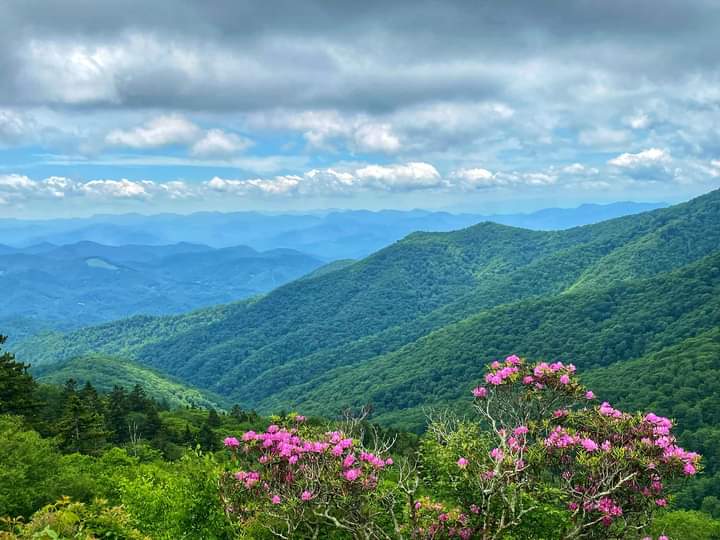
The Biltmore Estate: Asheville's Original Adventure Hub
Experience the Biltmore Estate beyond its historic mansion—explore miles of trails and rugged foothills that bring Asheville’s wild heart to life. This guide helps you plan an adventure filled with rich landscapes, practical trail tips, and the thrill of engaging with nature on its own terms.
Wear sturdy, broken-in hiking boots
The estate’s trails vary from slippery rock to uneven forest paths—good boots reduce fatigue and prevent injuries.
Carry at least 2 liters of water
Hydration is crucial, especially on warmer days with elevation gain. Water refill stations are limited on trails.
Start early to avoid afternoon crowds
Mornings offer cooler temperatures and quieter paths, making it ideal for soaking in views and wildlife activity.
Use insect repellent during warmer months
Ticks and mosquitoes thrive in dense forested sections, especially from late spring through early fall.
The Biltmore Estate: Asheville's Original Adventure Hub
The Biltmore Estate stretches across 8,000 acres of rugged Appalachian foothills, where history and adventure fuse into one remarkable destination. More than just America’s largest private home, the estate offers a playground for explorers eager to engage with a landscape fiercely itself—wild yet carefully curated, ancient forest alongside pastoral farmland, all within reach of Asheville’s vibrant culture.
Stepping onto Biltmore’s grounds, you're immediately drawn into trails weaving beneath towering oaks and poplars, the canopy alive with rustling leaves that dare you forward. The Adventure Trail, for example, is a moderate 3.5-mile loop featuring a 500-foot elevation gain that rewards with sweeping views over the French Broad River Valley. The terrain shifts between packed earth and rocky scrambles, requiring steady footing but offering tactile engagement with the land itself.
From hiking and biking to horseback riding, the estate caters to a variety of outdoor enthusiasts. Each trail invites respect—curves and climbs remind you that the wilderness here is not staged for ease but preserved in its natural rhythm. Be ready for shifting weather patterns and watch for slick rocks after rain; the forest floor holds its own moods, challenging you to adapt.
Timing your visit is key. Early mornings deliver crisp air and serene light cutting through the fog. Afternoon brings bursts of energy as wildlife stirs—turkeys dart, and breezes weave a fresh tune through the pines. Practical gear is your best companion: sturdy boots that grip the uneven path, water to answer the hills’ demand, and layered clothing to navigate mountain temperaments.
Beyond trails, the estate offers the historic Biltmore House—with its grandeur and quiet corners where history lingers—and formal gardens that bloom through the seasons, offering moments of calm after physical exertion. The estate’s wineries and farm tours reveal layers of human endeavor wrapped in this wild landscape, making the adventure as much about discovery as exertion.
Whether you're here to hike forest trails or explore the expansive grounds by bike, plan for at least half a day to capture the fullest experience. Respect the land’s honesty; it’s not about conquering but engaging with a place that remains steadfastly alive and vividly wild.
Prepare well, tread lightly, and let the Biltmore Estate show you Asheville’s original roots of adventure.
Nearby Trips
All Adventures
Boat Charters
Water Activities
Adventures near Asheville, North Carolina
Discover the unique and memorable adventures that make Asheville, North Carolina special.
Frequently Asked Questions
Is the Biltmore Estate suitable for beginner hikers?
Yes, many trails on the estate are beginner-friendly, offering gentle terrain and shorter distances. However, moderate fitness is helpful for some routes with elevation gain.
Can I bring my own bike to explore the estate trails?
Biltmore permits biking on specific trails and roads within the estate. Renting bikes on site is also available. Check trail signs and maps for bike-friendly routes.
Are pets allowed on the estate trails?
Pets are allowed on certain trails if leashed, but they are not permitted inside the Biltmore House or gardens. Always confirm regulations before your visit.
What is the best time of day to hike for wildlife spotting?
Early morning and late afternoon are prime times when animals like deer and turkeys become active and more visible along the trails.
Do I need to purchase a separate ticket for outdoor activities at Biltmore?
Yes, besides the historic house tour, some outdoor activities including trail access require an estate admission ticket. Check official resources for current pricing.
Are guided tours available for the hiking trails?
Guided nature walks and bike tours are offered seasonally. These can enhance your experience by providing local knowledge and historical context.
Recommended Gear
Sturdy Hiking Boots
Provide support and traction on mixed terrain to prevent injury and fatigue.
Water Bottle or Hydration Pack
Keeps you hydrated during moderate exertion and variable weather conditions.
Layered Clothing
Allows you to adjust to changing temperatures, especially in spring and fall.
Insect Repellent
Protects against ticks and mosquitoes, most active during warmer months.
Local Insights
Hidden Gems
- "The Bass Pond area offers tranquil water views and exceptional birdwatching away from main trails."
- "The Craggy Pinnacle viewpoint, accessed via an off-the-beaten-path trail, provides panoramic vistas seldom crowded."
Wildlife
- "White-tailed deer frequently cross trails at dawn and dusk."
- "Eastern wild turkeys roam the forest floors, their calls audible along shaded paths."
History
"Built in the late 19th century by George Vanderbilt, the Biltmore Estate blends European grandeur with Appalachian wilderness stewardship, representing a unique chapter of American industrial and cultural history."
